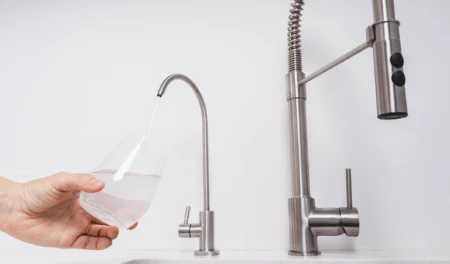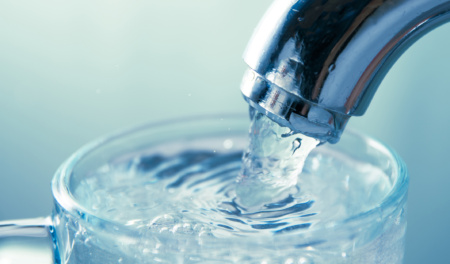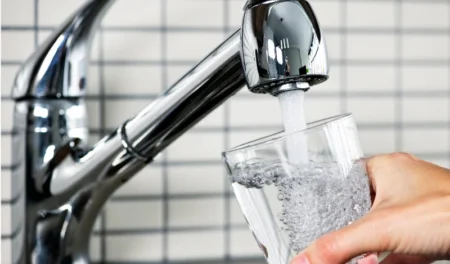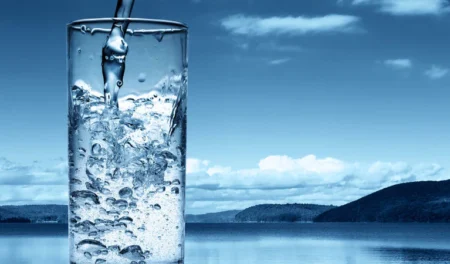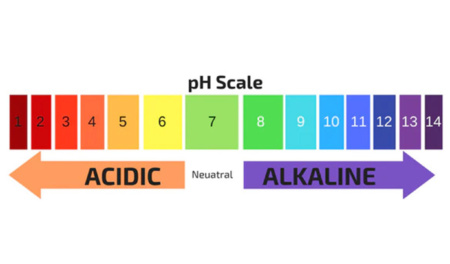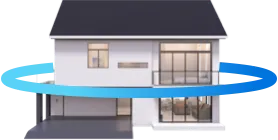What is a Whole-House Filtration System?
A whole-house filtration system is a comprehensive solution for filtering the water that flows through your entire home. It’s installed at the main water supply line to ensure that every tap and appliance receives filtered water, providing consistent quality throughout.
These systems are essential to many homeowners because they offer a dependable way to maintain clean water across your entire household. By removing sediment, chemicals, and other contaminants, a whole-house filtration system ensures that water is cleaner for bathing, drinking, cooking, and laundry.
With whole-house filtration systems in place, households can enjoy peace of mind knowing their water is cleaner, healthier, and available from every outlet in their home.
Benefits of Whole-House Filtration Systems
Health
Contaminant Removal
Whole house filtration systems are designed to filter out harmful contaminants such as chlorine, heavy metals, pesticides, and volatile organic compounds (VOCs), which can affect health. By addressing these issues, the system provides safer water for drinking, cooking, and hygiene.
Allergen Reduction
By filtering out sediment and chlorine, these systems help reduce allergens that could irritate the skin or exacerbate respiratory conditions, especially important for people with sensitivities or allergies.
Convenience
Centralised Solution
A whole house system eliminates the need for separate filters at each outlet, saving time and effort on maintenance and replacement.
Appliance Longevity
Some specific filters can remove sediments and minerals before they enter your appliances to help reduce scale buildup. thus extending the lifespan of your dishwasher, water heater, washing machine, and other devices. The ARAGON filter has demonstrated effectiveness in reducing scale (calcium and magnesium deposits from water for example.
Consistent Quality
Whether you’re drinking from the kitchen tap, taking a shower, or running a load of laundry, you receive the same quality water, ensuring a consistent and pleasant experience.
Environmental Impact
Reduced Plastic Waste and Carbon Footprint
By reducing the reliance on bottled water and single-use filters, these systems can significantly cut down on plastic waste and contribute to a cleaner environment.
On top of that, the reduced production and transportation of bottled water can lead to a smaller carbon footprint, helping to lower overall greenhouse gas emissions.
Types of Whole-House Filtration Systems
Four main types of filtration systems can be used in whole-house filtration. Each of these offers unique strengths and often works best in combination with others to ensure comprehensive water treatment throughout your entire home.
Sediment Filters
Sediment filters primarily target particles like dirt, sand, rust, and other larger debris suspended in the water supply.
These systems are ideal for homes with high sediment levels due to old plumbing, local water conditions, or well water. They often serve as the first stage in a multi-stage filtration system, doing the hard work of removing sediment and protecting other filters downstream.
Carbon Filters
Carbon filters come in many different forms and the quality of the final filtered product can vary depending on the actual source of the carbon. Typically, carbon filters are designed to reduce chlorine, unpleasant tastes, and odours. They can also target certain organic compounds, pesticides, and some heavy metals.
They’re great for households wanting to improve the taste and odour of their water. They are often paired with other filters to remove a broader range of contaminants.
Reverse Osmosis Systems
Reverse osmosis (RO) systems work by pushing water through a semipermeable membrane, which filters out a vast array of impurities, including dissolved salts, heavy metals, and microorganisms.
These systems can be suitable for homes where the local water supply may have high contamination levels or concerns about specific contaminants like nitrates and lead. However, RO systems can reduce water pressure and require a pre-filtration system. Additionally, RO systems can cause excess water usage due to the wastage of water caused by the filtration
Ultraviolet (UV) Purifiers
UV purifiers are technically not water filters but can be used as part of filtration systems. UV purifiers use ultraviolet light to kill or deactivate bacteria, viruses, and other pathogens in the water. They are often used alongside sediment and carbon filters for a comprehensive solution.
These systems can be foreseen in well water or in regions where microbial contamination is a risk. They ensure safe drinking water by effectively neutralising biological contaminants.
How to Choose a House Filtration System
Choosing the best whole-house filtration system for your home can be achieved by evaluating your unique water quality needs and considering technical factors like capacity and flow rate.
Assessing Your Water Quality Needs
The first step is to understand the quality of your water. If you’re using a well or another private source, your filtration needs will differ significantly from those connected to municipal supply.
You can use a water test to pinpoint the specific contaminants present, such as chlorine, heavy metals, pesticides, or bacteria. When considering your water quality needs or testing, you should also factor in any health concerns, like allergies or sensitivities, that might require more advanced filtration. This assessment will help you identify which type of filtration system will be the most effective.
Considering System Capacity and Flow Rate
Next, think about the demands of your household. The system needs to handle your daily water consumption and deliver an adequate flow rate across all taps and appliances. A household with several people requires a filtration system that can handle high water usage without causing a significant drop in pressure.
Importance of Compatibility with Local Water Regulations:
Finally, make sure your filtration system is compatible with local water regulations. Some systems, particularly reverse osmosis, can produce wastewater that needs proper disposal, so it’s essential to comply with local rules about discharges.
Installation codes must also be adhered to, which may require professional assistance for proper setup. Verifying these factors beforehand ensures that your system will operate smoothly and stay within regulatory guidelines.
Finding a Whole-House Filtration System
Investing in a whole-house filtration system may be a smart choice for any household prioritising health, convenience, and sustainability.
These systems offer comprehensive filtration by removing a wide range of contaminants like chlorine, sediments, heavy metals, and bacteria, ensuring that the water throughout your home is clean and safe. With the right system capacity and flow rate, everyone in your household will enjoy reliable, high-quality water from every tap and appliance. Plus, reducing the need for bottled water and single-use filters can lessen your environmental footprint.
If you’re ready to learn more about these systems, Aussie Water Coolers offers a range of whole-house filtration systems tailored to meet varying household needs. Whether you’re looking for sediment filters, reverse osmosis, or you’re not sure yet, our solutions can help deliver cleaner water that complies with local water regulations. Visit our online shop today to explore our filtration options and speak to our team about choosing the perfect system for your home.
We offer free no obligation, non-hard sell advice at all times, so please feel free to contact us to learn more.



